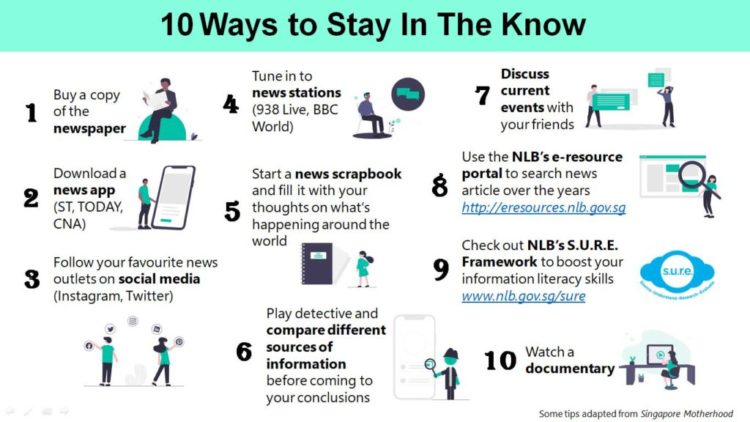By now, all future Secondary school students are thinking about their exciting new educational journey next month. What can you expect? Below, one of our secondary school teachers, Teacher Rachael, gives some advice on the changes to expect in secondary school English.
You’ve collected your PSLE results, and perhaps you’ve heaved a sigh of relief or moped about falling short. Perhaps you’ve been pleasantly surprised and are excitedly thinking about what comes next.
While the secondary school you’ll be heading to might be an uncertainty, at least one thing is for sure – the English language will continue to be very important. So, whether you’ve fared well or poorly for English at the PSLE, it’s more crucial that you prepare yourself for your next phase. Your PSLE English score does not have the final say.
This post will introduce two new aspects in the Secondary English syllabus, and suggest how you can give yourself a head start!
1. Composition – the Expository Essay
While you’ve been used to writing narrative compositions in primary school, come secondary school, you will have to adapt to writing expository essays, which are compositions that are persuasive in nature and require you to craft arguments to support your views. What can you expect from expository writing?
- Discussing real-world issues and taking a more critical stance towards these issues
- Developing an opinion and learning how to support your opinion.
- Unlike narratives or stories, you need to source for factual information, rather than rely on your imagination as is typical of storytelling (narrative writing).
While the narrative writing genre will remain, the emphasis will shift to expository writing as you move towards upper secondary. These may sound daunting, but there are ways to ease yourself into expository writing!
Read the newspapers
If you aren’t already reading the newspapers, start by browsing the papers and scanning the headlines. This will give you a sense of what’s happening in the community and around the world. You don’t have to read every article – start with those that interest you.
- Challenge yourself to read 2 local news articles, 1 world news article, and perhaps another 1 or 2 of your liking.
- Try The Straits Times or Today Online (if you don’t subscribe to the former), or Channel News Asia by reading online
- Follow these news channels on Instagram (@straits_times, @todayonline, @channelnewsasia) or Twitter (@STcom, @TODAYonline, @ChannelNewsAsia) where you get bite-sized updates and can quickly access the full article at your fingertips!
Keep a newspaper scrapbook
Keep a newspaper scrapbook, where you cut/print out interesting news clippings. This can serve as a journal where you jot down your personal thoughts, just to get your started on developing opinions of your own. Exercising this “muscle” early will help you use it more easily when the need arises.
- You can go a step further to classify these articles into themes/topics, e.g. science and technology, environment, arts and culture, community life.
- If you’re more digital savvy, save these articles in categorised folders so you can review them and pull them out easily.
Put a twist to your journey through current affairs!
Here are 10 ways to stay in the know:

2. Summary
This is not an entirely new skill, as you would have practised it in Synthesis and Transformation, where you learn to present information in other words.
What can you expect for this component?
- Identifying relevant information
- Paraphrasing – using your own words to re-present information
How can you hone your synthesising / summary skills?
- Expand your vocabulary – by reading widely and intentionally registering new words in a notebook.
- Install a dictionary and thesaurus app on your phone, e.g. Merriam Webster. When you come across a new word, look it up and study some of its synonyms.
- Make it a point to use new words you have learnt.
- Challenge: After reading a news article, try to summarise it in 10-20 words. Or,play reporter! Recount the incident to a friend (or family member) in 3 points, keeping each point to 10 words or less.
- Use word games! I personally think these are the best ways to train your versatility and ease in using words. Simple ones like Scrabble or Bananagrams help you think on your feet and make you more agile with your use of words. My favourite is Taboo which is trickier because you’re “banned” from using certain words and forced to adopt other words to describe the key word. A thrilling but fulfilling game you can play anywhere!
The above are some tips to help you widen your vocabulary, make friends with words, and use them effectively in your summary – and in writing too!
Learning English can be fun, though much of it requires hard work and consistent effort. Start by giving yourself a chance – pick up some of the habits above and let us know which ones work for you! You can stretch your potential in the English language when you start now.
Check the other articles from this section
- Tackling the Situational Essay: Using persuasive speech techniques
- How to write a good Situational Essay: Analyse, Amplify and Apply the appropriate tone
- Lower secondary Writing Series 1 – E02: Narrative writing (or how to write good essays)
- Lower secondary Writing Series 1 – E02: Narrative writing practice
- Lower secondary Writing Series 1 – E03: Expository writing
- Lower secondary Writing Series 1 – E01: How to analyse essay questions
- Lower secondary Writing Series 1 – E04: Hybrid writing
- Secondary English Paper 1 components: Diagnosing your strengths and weaknesses
- Lower secondary Writing Series 1 – E05: Avoiding writing pitfalls
- Narrative Writing: Tips and Tricks
- From primary to secondary English: What’s new and challenging?
- Post-Exam Reality Check in 3Rs
- Tackling the Situational Essay (Part 3): Making Your Feature Article an Engaging Read
- Sec 2: 5 tips to help you write great English expository essays
- 3 tips for tackling the summary Question
- Discursive essay: Writing a well-developed body Paragraph
- A Sneak Preview of the Secondary English Writing in the Sec 2 class
- Secondary 2 English – Editing through clue-finding
- Secondary 1 English: An introduction on how to create interesting characters
Don’t Miss Any Future Post!
2024 Bukit Timah Branch Secondary English Tuition Timetable
| Level | Class Type | Day | Time |
|---|---|---|---|
| S1 | All Components Class | SAT | 5 pm to 7 pm |

